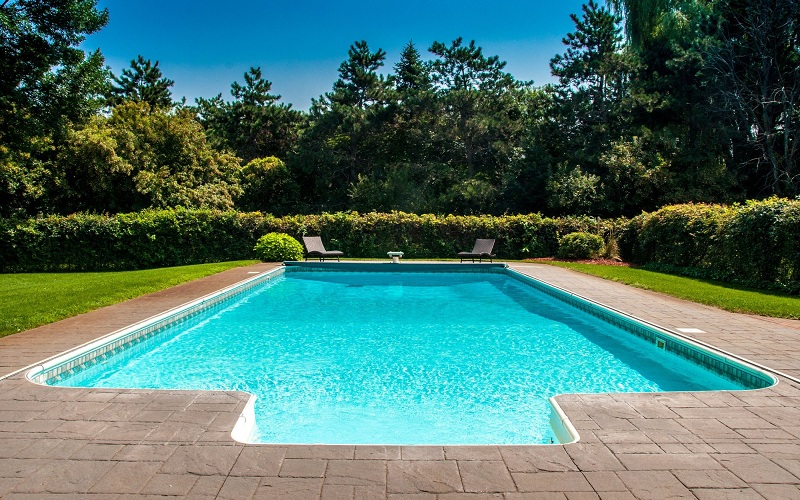Introduction
A dip in Delhi once equated to a public club pool or perhaps the periodic luxury hotel courtyard reflecting sunbeams. The notion of a private, specially constructed pool was an exception. When it did occur, the design was simple: rectangular, utilitarian, constructed once and never remembered. That vision no longer holds up in the city. In the last ten years, swimming pool manufacturing in Delhi has changed a completely different shape. The model has been altered towards complex, customized construction, eco-friendly engineering, and innovative design thinking.
The transformation did not come overnight. It emerged from crossing realities: increased global consciousness, a tense urban setting, increasing expectations from consumers, and an added new layer of technology that reshapes what pools can be. Swimming pool manufacturers in Delhi are now competing not on cost or efficiency but on ingenuity, productivity, and the promise of going green.
The Emergence of Customized Lifestyle Needs
Wealth in Delhi has transformed the nature of luxury being experienced. The rich no longer desire what everyone else puts in; they desire personalization. That’s why pools now resemble one another less and are more tailored to the shape of a house, villa, or rooftop balcony.
In houses where space is precious, a tiny courtyard will contain a small plunge pool surrounded by glass tiles, serving also as a meditation nook. On rooftops of skyscrapers, infinity pools now run the length of roofs, visually blending into the sky. For some, pools feature resistance jets for swimming in place, hydro-massage chairs, or sunken lounges. It’s personalization on several levels functional, visual, and emotional.
The tale isn’t simply about luxury villas. Medium-sized residential complexes, boutique hotels, and gyms are seeking pools that do more than store water. They are sculpted to reflect the character of each establishment, providing fitness, recovery, and well-being as much as recreation. This desire for individuality, for pools that communicate in the language of the property that they serve, is driving the move towards customization among swimming pool manufacturers in Delhi.
The Impact of Technology
Technology has made pools into designed ecosystems. Water management no longer operates with primitive pumps and chlorine-intensive doses. Advanced circulation systems now enable water to stay clear with little wastage.
- Robotic cleaners and automated filtration have reduced manual labor.
- Intelligent sensors monitor pH and chemical levels constantly, making adjustments without guesswork.
- Solar panels heat pools naturally throughout the year, reducing electricity bills.
- Lighting systems controlled by mobile devices produce dynamic nighttime moods that make a pool not only functional but a design focal point.
Whereas years ago, the effort of maintenance discouraged many, automation has broken down those barriers. Clients no longer see pools as ongoing burdens but as long-term conveniences. This view of ease coupled with artistic freedom drives the industry toward more innovative models.
Sustainability: From Option to Obligation
Water is the most vital thing for Delhi. It is limited, disputed, and fragile. Under such circumstances, sustainability is not marketing it’s desperation. Such desperation has changed how pools are constructed, how they’re sold, and who gets to own the market.
Rainwater harvesting integration now supplies directly into pools, reducing reliance on groundwater. Evaporation-limiting covers span across pool surfaces when not in use. Backwash from filters is diverted into treatment systems so that it can be reused instead of wasted.
Even building materials have changed direction. Green liners, energy-efficient tiles, and recycled inserts demonstrate how green thinking now extends all the way down to the detail of construction. The effect is tangible. Consumers are confident that their way of life is not incompatible with environmental stewardship. Producers, on their part, know that reputations will be judged not only on design heroism but on how much they can minimize a pool’s ecological impact.
It describes why swimming pool manufacturers in Delhi are rolling out green solutions in a big way as normal procedure. Not doing it doesn’t merely cost contracts but also credibility.
Commercial and Institutional Projects as Industry Drivers
Hotels, resorts, and gyms form the strongest crucible for innovation. Their pools handle dozens, sometimes hundreds, of users daily. That pressure isn’t simply about volume, but about maintaining hygiene and efficiency without faltering. Here the industry’s most cutting-edge practices often appear first.
Luxury hotels play with unorthodox designs pools with glass walls, floating docks, or underwater lounge areas. Spas combine hydrotherapy pools with in-built jets for muscle therapy. Competitive pools for schools and universities require adherence to training standards, meaning precise depth profiles, safety measures, and standardized circulation systems.
These high-stakes projects often set the tone for the residential sector. Commercial buyers can afford early adoption of solar heating, greywater treatment, or UV sterilization systems. Once established, the same technologies filter into private homes as expectations rise. The institutional drive therefore acts as an incubator for Delhi’s entire swimming pool ecosystem.
Regulation That Shapes the Market
Delhi’s municipal environment laws frame water treatment, usage, and construction codes. These aren’t optional; they reshape design itself. With mandatory rainwater harvesting laws and sustainability norms written deep into building regulations, manufacturers must embed eco-friendly choices from the ground up.
Practically speaking, regulators are driving the market towards exactly the type of sustainable customization that now characterizes it. For builders, this can mean cost and design problems. But for astute manufacturers, it’s a competitive advantage, representing an opportunity to bid not merely compliance but beating standards. Customers, attuned to reputation and to legality as well, see such guarantees as determinative.
Innovation in Materials and Construction
Classical reinforced concrete used to be the dominant means of pool construction throughout Delhi. That reign is coming apart. Modular steel pools, composite fiberglass pools, and glass-reinforced linings provide the new flexibility. They take fewer weeks to install, adapt to space where traditional pools do not, and reduce environmental pressures.
The finishing design has also become a field for testing. Reflective mosaics, fiber-optic lighting, slanting lagoon-style foundations all enable pools to toggle back and forth between use and art. Clients desire pools that embody Mediterranean courtyards or Southeast Asian retreats. The material palette is available today to turn those visions into reality, without anchoring them in yesterday’s ways.
Consumer Mindset: From Status to Wellness
Maybe the most profound change is psychological. Pools are no longer merely party backdrops or status symbols. They’ve gone into wellness.
- Fitness enthusiasts hire lap pools for structured swimming.
- Families request saltwater pools to keep children from exposure to chemicals.
- Previous generations include therapeutic pools with shallow safe ends and warmed jets for mobility training.
This recontextualizing makes sense of why consumers fight hard for tailored systems. They know the pool will be used every day not in moderation and so it needs to fit their rhythms and their health requirements. This is why it makes sense why sustainability and technology resonate so strongly. Both minimize daily friction, allowing pools to become easily incorporated into daily habits.
Existing Industry Challenges
No industry shift comes without tension. For Delhi-based pool manufacturers, there are a few thorns.
High upfront costs for solar heating systems and modular construction can intimidate mid-scale buyers. Skilled technicians qualified in UV filtration or digital automation remain in short supply. And even with recycling systems, Delhi’s water crisis remains a harsh reality.
But these challenges are also compelling resilience. Producers are educating new employees, acquiring modular packages to mitigate construction holdups, and trying cost-optimized eco-solutions. Adaptation is no longer a selection but the very framework of survival.
A Leadership Example
Its most successful players are not those that avoid complexity but instead lean into it. Quolike Watertech is just such an instance, committing to combining custom design with enduring sustainability within the very demanding ecosystem of Delhi. Its strategy reinforces the escalating market principle: customers these days reward innovation that endures, not merely design that captivates.
The Road Ahead
Swimming pool production in Delhi is at a seam of luxury and responsibility, a critical point where things go either way. Customization has made pools unique, making them an extension of lifestyle. Sustainability has given them moral foundation, showing that recreation can be done with environmental harmony. Technology has engineered pools to be smarter, simpler, and more effective than ever before.
Swimming pool manufacturers in Delhi who get these three rights, will own the next decade. Those who don’t will lose clients.
Conclusion
Looking ahead Delhi will see more rooftop pools on its skyline, more recycled water systems working quietly in residential courtyards and more smart panels glowing in backyards where a single touch sets temperature, light and maintenance. Pools are no longer just full of water; they are full of meaning statements of how design, technology and sustainability can come together in India’s capital.



